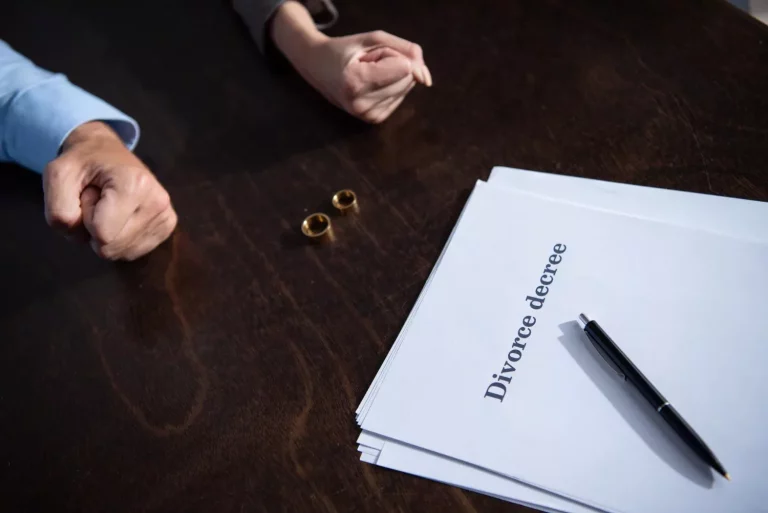Divorce laws in Massachusetts: Is it a 50/50 state?
Have you ever wondered if Massachusetts is a 50/50 divorce state? Our experienced divorce lawyers at TheBostonDivorceLawyer are here to answer that question for you. Find out everything you need to know about divorce laws in Massachusetts in this informative article.
As demonstrated by Massachusetts law, the state follows equitable distribution during divorce proceedings, not a strict 50/50 division of assets. This means that marital assets are divided fairly but not always equally between spouses.
Definition
In Massachusetts, which is a 50/50 divorce state, I learned that marital assets and debts are usually split evenly between both spouses.
It seems that, in Massachusetts, each person is entitled to half of the property earned during the marriage, such as income, investments, and real estate.
When a couple divorces in Massachusetts, a judge looks at various factors to split the assets. These factors include how long the marriage lasted, each spouse’s financial contributions, and their future earning potential.
As far as I’m concerned, although it’s called a 50/50 divorce state, this doesn’t mean everything is split exactly in half. Instead, it means the assets are divided in a way that the court sees as fair. So, one spouse could get more than half if they contributed more financially or need more support.
In short, Massachusetts law aims to fairly divide assets and debts between spouses during a divorce, helping both parties achieve financial stability afterward.
Laws
In Massachusetts, I’ve learned that divorces are governed by state laws which detail how assets and debts are divided between spouses.
Honestly, Massachusetts isn’t a state where divorce assets are automatically split 50/50. Instead, it follows a rule called equitable distribution. This means that marital assets are divided in a way that is fair and reasonable. The courts look at different factors, like how long the marriage lasted, what each spouse contributed, and what each spouse needs financially.
Judges in Massachusetts have the power to divide assets as they see fit. This might not always mean a 50/50 split. Keeping it real, for example, if one spouse needs more financial support or contributed more to the marriage, the division might be unequal.
If you’re going through a divorce in Massachusetts, it’s important to know how the state’s laws deal with dividing assets. Talking to a family law attorney can help you understand these laws and make sure your rights are protected.
Property
As we previously pointed out in Massachusetts, I learned that property in a divorce is generally divided based on equitable distribution rather than a strict 50/50 split.
Let me explain, the court will split property in a way that seems fair, considering things like how long the marriage lasted, what each spouse contributed, and their individual needs. Property bought during the marriage, like the house, cars, furniture, and retirement accounts, usually gets divided.
If you think about it, but property owned before the marriage, or received as a gift or inheritance, might stay with the original owner. Sometimes, a prenuptial agreement will decide how to divide property if there’s a divorce, and the court will usually respect these agreements if they are fair. It’s very important for both spouses to share all their assets and debts so the court can decide properly.
Alimony
Drawing on earlier remarks in Massachusetts, when my ex and I got divorced, the court ordered me to pay alimony to them.
So to speak, alimony is money one spouse pays to help support the other after they get divorced. The goal is to help the spouse getting the money keep a similar lifestyle to what they had during the marriage.
In Massachusetts, alimony isn’t just split 50/50. Instead, the court looks at different factors to decide how much alimony should be paid. These factors include how long the marriage lasted, the age and health of each spouse, how much money they can earn, and what their financial needs are. If you think about it, the court also looks at how each spouse contributed to the marriage, both with money and by taking care of the home and kids.
There are different kinds of alimony in Massachusetts. General term alimony is paid regularly for a set amount of time. Other types, like rehabilitative alimony, reimbursement alimony, and transitional alimony, can be paid in a lump sum or for a shorter time.
The main idea is that alimony in Massachusetts should be fair, considering each divorce case’s unique details. The court wants to make sure both spouses can move on financially and continue to live reasonably well after the divorce.
Custody
As we previously pointed out sure! Here’s a revised version from the first person perspective:
In Massachusetts, I learned that custody means having both the legal authority to make decisions for a child and being responsible for their physical care.
Let me explain, when parents get divorced, they need to figure out how to share custody of their child. They can do this by agreeing on a parenting plan or having one decided by a judge.
In Massachusetts, there isn’t a set rule for 50/50 custody. Instead, the law focuses on what’s best for the child. Courts look at things like the child’s relationship with each parent, what the child wants, and which parent can provide a stable and loving home.
Sometimes, parents might agree that the child should spend equal time with each of them. However, this doesn’t always happen. The court can decide on a different arrangement based on what’s best for the family’s situation.
No matter what the custody arrangement is, both parents should aim to have a good co-parenting relationship for their child’s sake. This means working together on important decisions about the child’s life and keeping a positive attitude.
Rounding it Up
Based on what we said before, in Massachusetts, divorce laws do not necessarily adhere to a strict 50/50 division of assets and liabilities. While the state follows the principle of equitable distribution, this does not always result in an equal split of marital property.
What TheBostonDivorceLawyers is supporting the idea of is, factors such as the length of the marriage, contributions of each spouse, and the financial situation of each party are considered in determining a fair division of assets.
References
Here is the literature that I was using for drafting this article:
- “Massachusetts Divorce Law Practice Manual”, Massachusetts Continuing Legal Education, Author: Fern Frolin
- “Understanding Divorce in Massachusetts: A Guide to the Legal, Emotional, and Financial Basics”, Sphinx Publishing, Author: Pamela Hallan-Gibson
- “Massachusetts Family Law and Practice with Forms”, Vol. 14, 3rd Edition, West Publishing Co., Authors: Austin J. McGuigan, Hon. Patricia S. Gorman, Maureen McBrien







